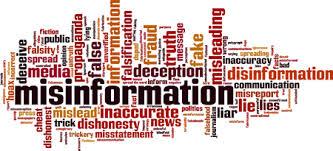4. The Misinformation Effect
The misinformation effect is the tendency for memories to be heavily influenced by things that happened after the actual event itself. A person who witnesses a car accident or crime might believe that their recollection is crystal clear, but researchers have found that memory is surprisingly susceptible to even very subtle influences.
There are a few factors that may play a role in this phenomenon. New information may get blended with older memories. In other cases, new information may be used to fill in "gaps" in memory.
74
367 reads
CURATED FROM
IDEAS CURATED BY
Cognitive Biases
“
The idea is part of this collection:
Learn more about problemsolving with this collection
Conducting market research
Analyzing data to make informed decisions
Developing a product roadmap
Related collections
Similar ideas to 4. The Misinformation Effect
The Priming Effect
Your mind is able to fill in missing details by matching them to existing information. It also cross-references and bounces between linked associations. This priming effect even works when you are not consciously aware of it. For instance, you can break an object or obscure part of it, and yo...
Read & Learn
20x Faster
without
deepstash
with
deepstash
with
deepstash
Personalized microlearning
—
100+ Learning Journeys
—
Access to 200,000+ ideas
—
Access to the mobile app
—
Unlimited idea saving
—
—
Unlimited history
—
—
Unlimited listening to ideas
—
—
Downloading & offline access
—
—
Supercharge your mind with one idea per day
Enter your email and spend 1 minute every day to learn something new.
I agree to receive email updates
